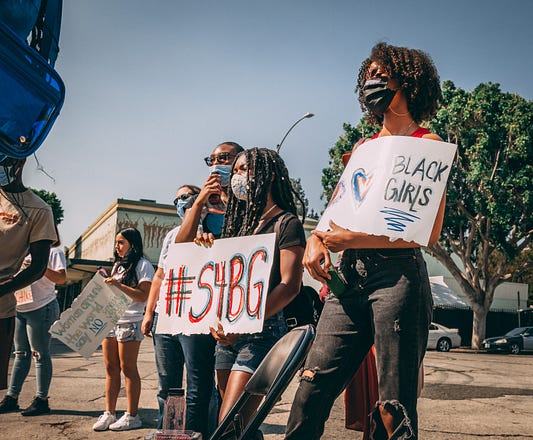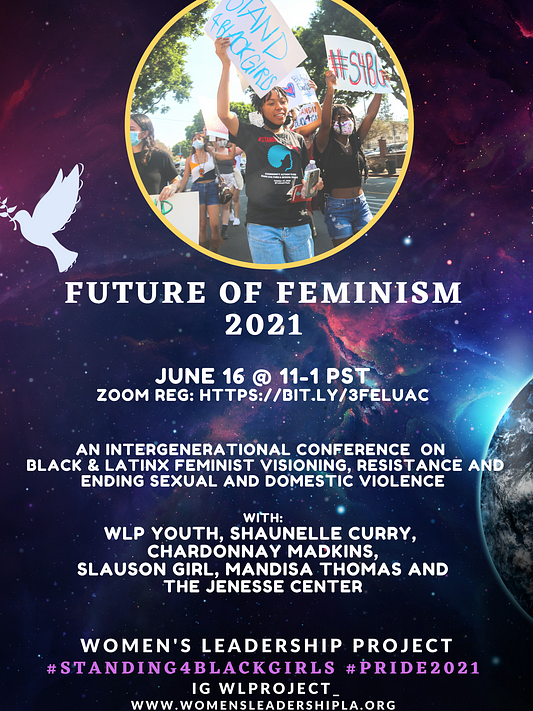
By Sikivu Hutchinson
Audre Lorde once wrote that “there is no such thing as a single issue struggle because we do not live single issue lives”. Lorde was a literary badass who never held her tongue or shied away from calling out how white supremacy and Black sexism led to “scarred, broken, battered and dead daughters and sisters” whose trauma never makes headlines.* When I desperately needed Lorde’s voice in my teens and twenties, I became one of those battered sisters, surviving intimate partner violence in a world where “good” Black women did not buck Black patriarchy, the Black church or any other symbol of Black gender orthodoxy. Then, as now, these institutions demanded that survivors remain silent about domestic violence and sexual abuse.
This 21st century culture of silence is especially pronounced when it comes to Black women’s experiences with gun violence in the context of intimate partner violence and sexual violence. As the U.S. marks the grim milestone of 240 plus mass shootings this year, every day, Black men, Black women, and Black communities continue to shoulder the disproportionate weight of normalized death and violence. In April in Chicago, 7 year-old Jaslyn Thomas was gunned down at a local McDonalds, becoming the third child to die from gun violence there this year. According to Everytown Policy and Research, African Americans “experience nearly 10 times the gun homicides, 15 times the gun assaults, and 3 times the fatal police shootings of white Americans”. Nonetheless, gun violence in African American communities is marginalized as well as pathologized. It is viewed as a symptom of the racist stereotype that Black folks in the “inner city” are more prone to criminal violence. And it is downplayed in mainstream narratives about the prevalence of gun violence.
Commenting in Essence Magazine, former Ohio Congressional candidate Desiree Tims wrote, “As devastating as it is to acknowledge, America’s gun violence problem particularly haunts Black women; our sons, brothers and fathers are 10 times more likely to die from gun violence than their White counterparts. Equally as troubling, Black women die from gun related domestic partner abuse at disproportionately higher rates than any other group” and Black women are more likely to die from gun violence than are white men. These two key facts continue to drive a wedge in racial justice activism. Time and again, Black women across sexuality and gender identity (for example, Black trans women have the highest homicide rates among trans women in the nation) are mowed down in disproportionate numbers, yet the stigma around Black feminist anti-violence prevention education and engagement remains. Despite the fact that domestic and sexual violence affect the bodies of women of color every day, “quietly”, under the radar, domestic violence generally only pricks public consciousness when there is a high profile tragedy against white women or a mass shooting rampage committed by a stalker-abuser. As the African American Policy Forum (AAPF) noted recently, “Such violence has long been a public health issue and central concern for all women, and Black women in particular. Yet it has been largely overlooked by the public, state, and judicial systems.”
In March, the AAPF released a series of memes on the impact of “private violence” on Black women and girls. Black women are 2.5 times more likely to die by homicide. Be they trans or cis, the majority are killed by an intimate partner or relative. Black women are also more likely to experience sexual harassment at work. Normalized violence, coupled with systemic disparities in wages and health care access, have devastating implications for young Black girls into adulthood. In schools where youth have little to no sexual harassment prevention education, victim-blaming and shaming of Black girls are legion. When there is no attention to the culturally specific ways Black girls are hypersexualized and “adultified” — both by the dominant white culture and African American culture — Black girls are targeted as unrapeable aggressors who provoke violence by flouting respectability. And when there continues to be denial about the gravity of sexual assault, rape, and domestic violence in Black communities, all Black children and Black people suffer.
For example, in California, where homelessness among African Americans has skyrocketed, one in three Black women have experienced intimate partner and domestic violence. Domestic violence is one of the leading catalysts for homelessness among women. Yet, as the Little Hoover Commission recently noted, “California does not have a substantial prevention or early intervention program.” In April, the California Partnership to End Domestic Violence asked the state legislature for over $15 million from the Department of Public Health to coordinate statewide sexual and domestic violence prevention efforts. Part of that funding would go to prevention education, as well as food, transportation, and childcare for survivors. A core piece would provide assistance to young men and boys who are experiencing domestic abuse-related trauma.
The Partnership’s campaign for greater state funding is especially critical given the grave impact Covid shutdowns, layoffs, and school closures have had on women and girls of color globally. According to a 2021 California Study on Violence Experiences Across the Lifespan (Cal-Vex), reports of physical violence against women, including threats with a weapon, increased from 4% in 2020 to 7% in 2021. Globally, there was a 25% increase in violence against women, while a majority of shelters and DV (domestic violence) providers were forced to curtail or cancel services due to Covid. Only 22% of all individuals experiencing abuse reported seeking mental or medical intervention. And 8 in 10 Californians support alternatives to incarceration for domestic abusers, and, not surprisingly, fewer Black and Latinx folks believe police are effective in violence intervention (former Assemblymember and current State Senator Sydney Kamlager has sponsored a bill that would institutionalize community-based alternatives to emergency response).
In the midst of escalating racialized state violence and terrorism, the focus on ending rape culture and domestic violence must not dim. Creating culturally responsive K-12 domestic and sexual violence prevention education that examines how legacies of white supremacy, misogynoir, colonization, segregation, heterosexism, and economic inequality shape sexual abuse, sex trafficking, and intimate partner violence is critical. Ensuring that this curriculum is mandatory for all youth across gender and sexual orientation beginning in late elementary or middle school is essential. Ensuring that boys and young men are trained to be allies in identifying, questioning, and ultimately disrupting sexual harassment and sexual violence is fundamental. Ensuring that queer lived experiences and that of disabled youth of color are valued, lifted up, and made visible, is also essential. Although California passed a sweeping CA Healthy Youth Act in 2016 mandating comprehensive HIV/AIDS and sexual violence prevention instruction for middle through high school grades, most students only receive piecemeal instruction if any.

On June 16th, youth and adult allies from the #Standing4BlackGirls task force and coalition will address these issues at the 2021 annual Future of Feminism conference which is dedicated to spearheading community-based solutions to end sexual violence and rape culture against Black girls and girls of color. At the beginning of the year, the task force spearheaded a wellness initiative fund to provide free culturally competent therapy services for Black cis/straight and queer female-identified survivors in partnership with the BIPOC queer-affirming Open Paths Counseling Center in Los Angeles. Making this resource accessible to more young women, as well as developing a California state bill that provides mandatory anti-racist and queer-affirming domestic and sexual violence prevention education, are priorities of the task force. Investing in prevention and Black girls’ self-determination will ensure that the deadly reality of “one in three” broken, battered and dead sisters comes to an end.
*Audre Lorde, “Age, Race, Class and Sex: Women Redefining,” from Sister Outsider
Sikivu Hutchinson is a writer, educator, and director. Her books include Humanists in the Hood: Unapologetically Black, Feminist, and Heretical and the new novel Rock ’n’ Roll Heretic: The Life and Times of Rory Tharpe. She is the founder of the Women’s Leadership Project, Black Skeptics L.A., and a co-facilitator of the Black LGBTQI+ Parent and Caregiver group.